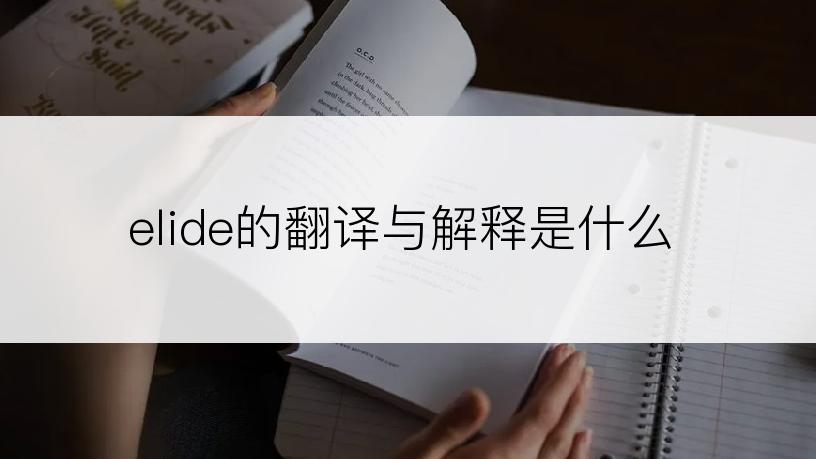elide的翻译与解释是什么
发布于 2023-07-06 04:09:16
浏览 310

详情:
1、
elide
2、
音标:英 [ɪ'laɪd] 美 [ɪ'laɪd]
3、
解释:
4、
vt. 省略;取消;删去;不予考虑删节
5、
n. (Elide)人名;(意)埃利德
6、
中文词源:
7、
elide 省略e-, 向外。-lid, 击,砍,词源同collide, lesion.即砍掉一块的,引申力省略。
8、
英文词源:
9、
elide (v.)
10、
1590s, a legal term, "to annul, do away with," from Middle French elider (16c.), from Latin elidere "strike out, force out," in grammar "suppress (a vowel)" from ex- "out" (see ex-) + -lidere, comb. form of laedere "to strike" (see collide). The Latin word in grammatical use translates Greek ekthlibein. Phonological sense "slurring over a sound or part of a word" in English is first recorded 1796. Related: Elided; eliding.
11、
双语例句:
12、
1. These habits of thinking elide the difference between what is common and what is normal.
13、
这些思维习惯忽略了普通和正常之间的区别。
14、
来自柯林斯例句
15、
更多相关例句:
16、
The ‘t ’ in ‘often ’ may be elided.
17、
often中的t可以不发音。【牛津词典】
18、
These habits of thinking elide the difference between what is common and what is normal.
19、
这些思维习惯忽略了普通和正常之间的区别。【柯林斯高阶英语词典】
20、
He complained about BBC announcers eliding their words.
21、
他抱怨说英国广播公司播音员省略了他们的话。【柯林斯高阶英语词典】
22、
These habits of thinking elide the difference between what is common and what is normal.
23、
这些思维习惯忽略了普通和正常之间的区别。【柯林斯例句】
上一篇:elicit的翻译与解释是什么
下一篇:eligibility的翻译与解释是什么


